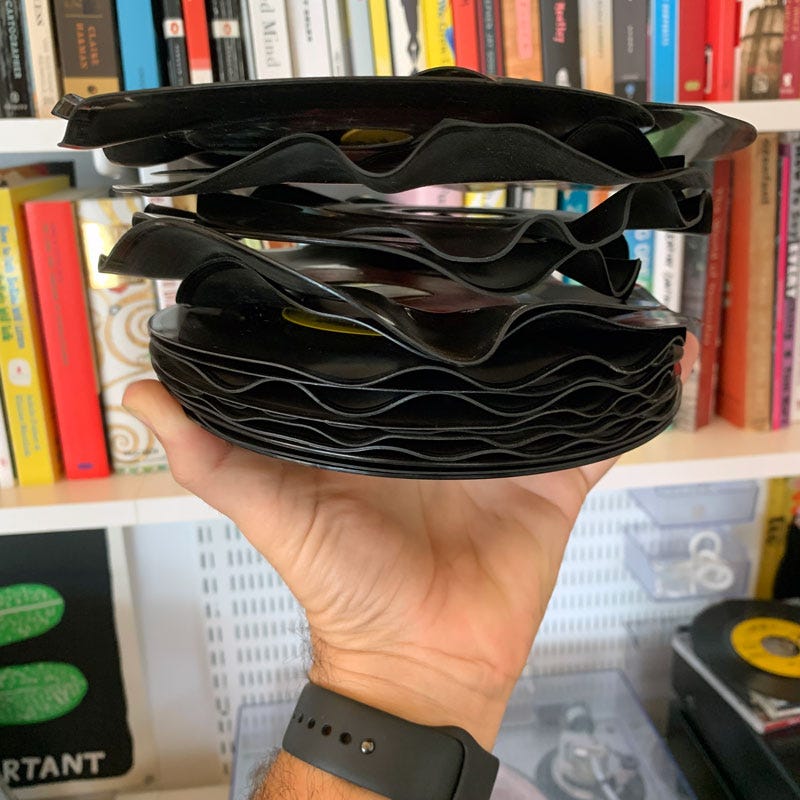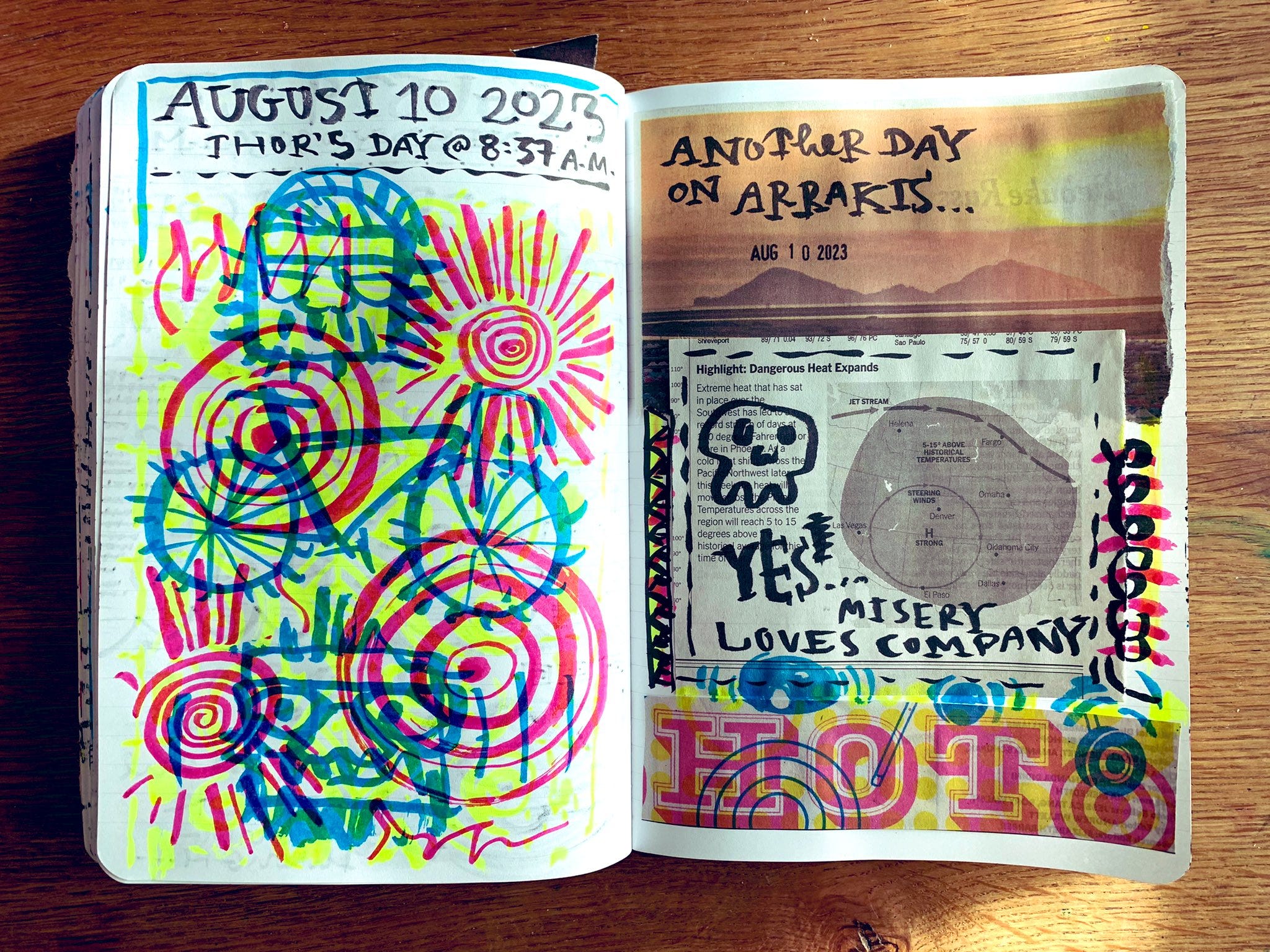
10 things worth sharing this week
| | |
| Hey y’all, It’s hot. Let us not tarry. Here are 10 things I thought were worth sharing this week: My primary adventure this week has been going through a stack of 45RPM singles that someone in my neighborhood left out in the Texas heat. Remarkably, a few survived. (Here’s a Spotify playlist.)
One of my favorite surviving 45s was Pete Drake’s “Forever.” I’d never heard of him, but he played pedal steel on a ton of records. (My favorite is probably Bob Dylan’s John Wesley Harding.) He also played steel on George Harrison’s All Things Must Pass, and during a break in recording, he showed another studio musician named Peter Frampton his device that makes a guitar sound like it’s talking.
I’m a big fan of the books of physicist Carlo Rovelli. Most recently I read an earlier book of his that’s been reissued: Anaximander: And The Birth of Science. My favorite bit was when he discussed the relationship between master and disciple in the ancient world, and the discovery of a third way between reverence and rejection.
A few newsletter writers I read posted about their notetaking habits this week: Ted Gioia marks up his books with marginalia, summarizes them, and writes down his ideas that the books spurred. Jillian Hess collects quotes in various commonplace books. (Check out this one from the 14th century!) I still don’t have any great notetaking system of mine that I could recommend to others — a lot of my note-taking actually happens in public on my blog and in this newsletter — but the one thing I’ve learned is that it’s really important to have a system for revisiting your notes. (See: “The Weekly Review.”) A good book on the topic is How To Take Smart Notes, which could be boiled down to “write as you read.”
I’ve heard from several readers with dyslexia (who tend to like my books because they’re visual and easy-to-read) and I know how hard it is even for a neurotypical person to record an audiobook, so I was really touched by Arnold Schwarzenegger on his challenge with dyslexia. A book on the subject I’ve been meaning to read is The Dyslexic Advantage. (Steve Silberman has said its neurodiversity-based approach partially inspired his wonderful book, NeuroTribes: The Legacy of Autism and the Future of Neurodiversity.)
I’ve been reading a lot on the subject of play. Johan Huizinga’s Homo Ludens is sort of the grandaddy of books about play, even though it’s not the easiest book to get through. After hearing Stuart Brown on a nice NPR podcast about bringing more play into your life, I read his book, Play: How it Shapes the Brain, Opens the Imagination, and Invigorates the Soul. (As I mentioned in Tuesday’s letter, I feel that all my reading can be boiled down to a question widely attributed to psychology Carl Jung: “What did you do as a child that made the hours pass like minutes?”)
Eye candy: After watching Stuart Brown’s TED Talk, I’ve been zooming in and out of Bruegel the Elder’s 1560 painting, Children’s Games. The Wikipedia entry has a catalog of 80 of the games depicted.
Ear candy: along with the melted 45s, I listened to a lot of 60s stuff this week: The Animals, Syndicate of Sounds’s Little Girl, and This is Clarence Carter. (If that’s too soft for you and you’d like to have your brains melted, try Horse Lords’ Live in Leipzig.)
RIP filmmaker William Friedkin. RIP singer-songwriter Sixto Rodriguez. RIP artist Jamie Reid, artist behind the Sex Pistols’ record covers. RIP Robbie Robertson, leader of The Band.
“In order to write a book, do a deed, paint a picture with some life in it, one has to be alive oneself.”
Thanks for reading. This newsletter is a hand-rolled, algorithm-free, reader-supported publication. If you’d like to support my work, take advantage of the 20% off paid subscriptions summer sale and join our creative community of thousands: Get 20% off for 1 year Stay cool out there. xoxo, Austin You're currently a free subscriber to Austin Kleon. For the full experience, upgrade your subscription. Upgrade to paid | |







No comments:
Post a Comment